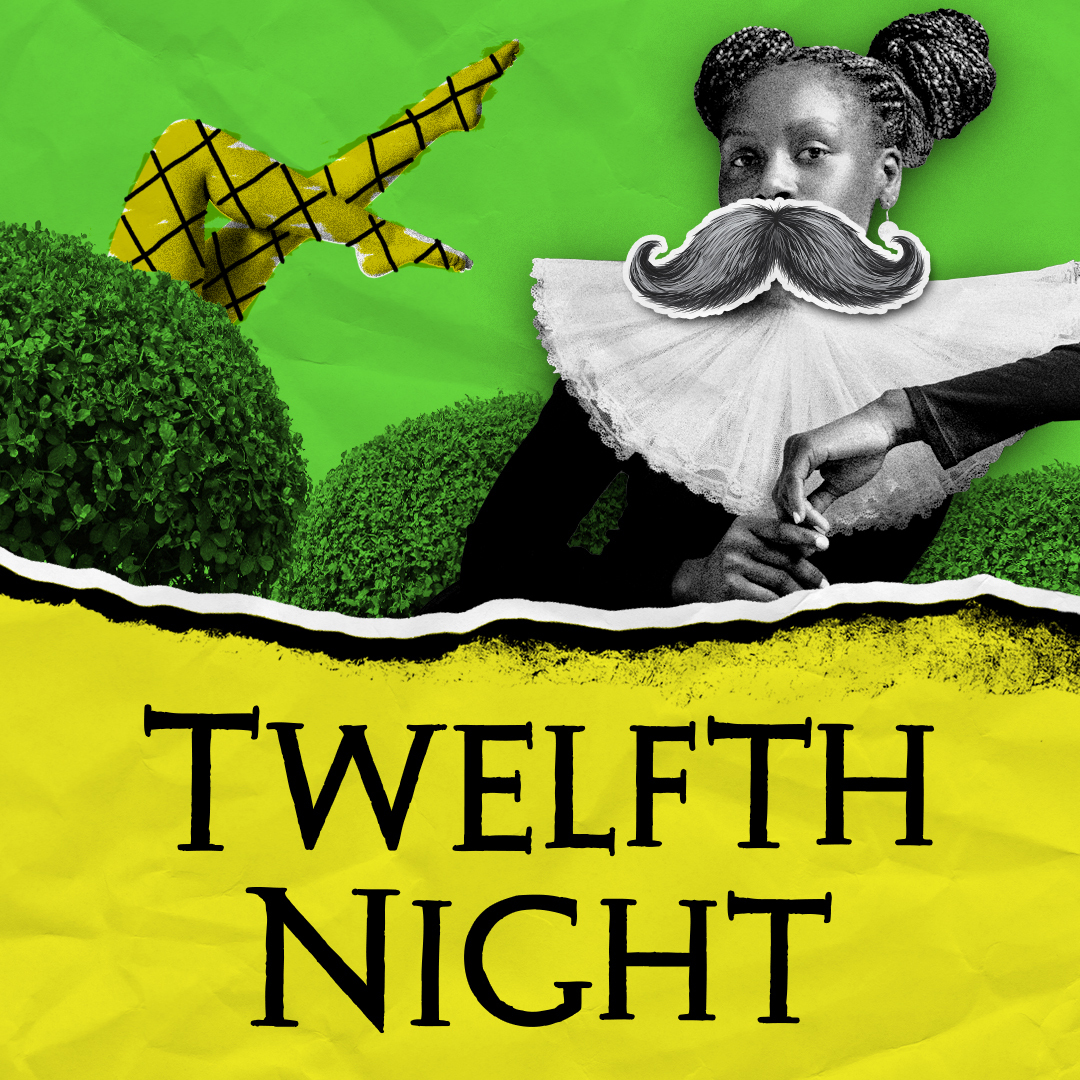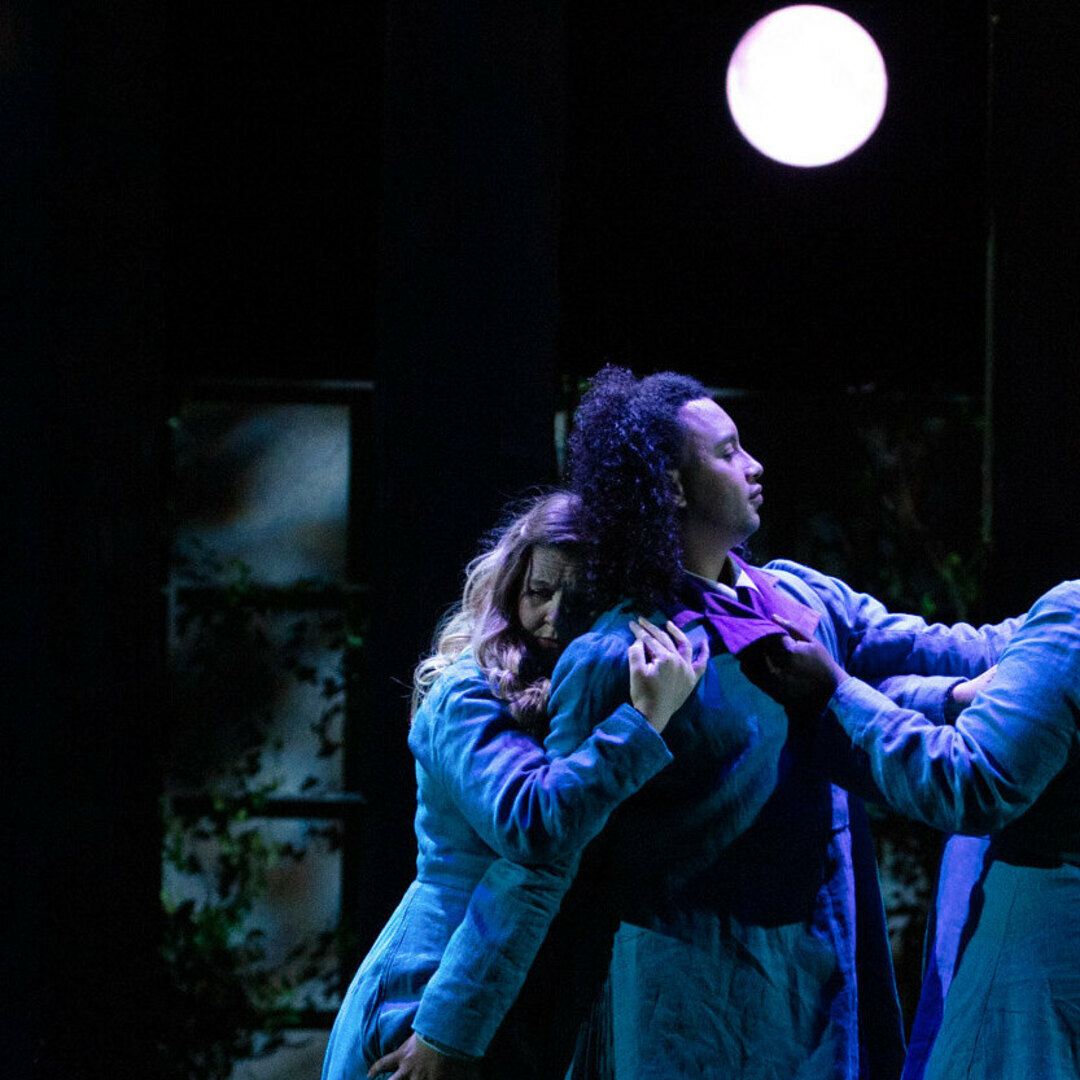Behind the Curtain: The 12 Days of Christmas
“At Christmas be merry, and thankful withall,
And feast thy poor neighbour, the great with the small;
Yea all the year long, to the poor let us give,
God’s blessing to follow us, whiles we do live.” —Thomas Tusser, c. 1557
For Shakespeare and his contemporaries, Christmastime was the most important and festive time of the year. In celebrations that lasted 12 days from December 25th to January 6th, Elizabethans put off work and decorated their homes with holly and laurels and candles. Some traditions we still observe today have their origins before or during the Elizabethan era. Families decorated and then burned a yule log in their hearths for the 12 Days of Christmas. A Kissing Bough was hanged in doorways — a laurel made of mistletoe and holly under which couples were meant to kiss. The singing of carols, the exchanging of gifts and the serving of large meals all had their origins during or before Shakespeare’s time and endure to this day.
Before Christmas emerged as the central winter holiday celebrated in the Catholic/Christian tradition, The Feast of Epiphany was the holiday which observed the arrival of Christ. The first record of the holiday dates back to around 215 AD when the Basilidians, a gnostic Christian group in Alexandria, celebrated the baptism of Jesus by John the Baptist on January 6th. As with many Christian holidays, the date of this also the date of a pagan holiday – that which celebrated the sun god Aeon. Aeon was said to be born of a virgin and had the ability to turn water into wine – much like Jesus. As Epiphany evolved, it came to encompass four major moments in the life and divinity of Jesus – his birth, the visit of the magi to baby Jesus in Bethlehem, his baptism, and his first miracle (turning water into wine). In the West however, as time went on and Christmas became a more important religious holiday, Epiphany became more strongly centered on the visit of the Magi. Though Epiphany came first, it is now notedly celebrated on the twelfth night after Christmas – which is supposedly when the magi arrived to honor Jesus.
Now known throughout most of the world as Twelfth Night, the religious observances include a solemn Mass. Because it celebrates the “revelation of the Messiah as a light to the nations”, extra candles are lit in the churches and cathedrals. The following prayer is spoken:
“May the splendor of your majesty, O Lord, we pray, shed its light upon our hearts, that we may pass through the shadows of this world and reach the brightness of our eternal home. Through our Lord Jesus Christ, your Son, who lives and reigns with you in the unity of the Holy Spirit, one God, for ever and ever”
Like other religious holidays, though, the secular celebrations are far from solemn. The celebrations surrounding Epiphany vary by culture, but in England the holiday was traditionally marked with “wassailing and revels”. Carolers sang in the streets, participants drank to excess and all celebrated a suspension of rules and social orders. Servants and masters mingled together, sharing a “Three Kings’ or Twelfth Night cake”. Baked into a cake was a pea and a bean. The woman who found the pea and the man who found the bean were then crowned King and Queen of Misrule and led those present in drinking and singing. The subversion of class is also central to the celebrations and social status was put aside so that all could participate in games, feasts and revels. For a brief time at the holidays all men were made equal.
Twelfth Night in Elizabeth’s court was often celebrated by her hosting Lord Chamberlain’s Men to perform for her. Some believe that Shakespeare created Twelfth Night: Or What You Will for the Queen and her guest, Count Don Virginio Orsino, and premiered it on January 6, 1601 to celebrate that year's Epiphany. Others believe that it was written later, but was still performed as part of the Epiphany celebrations. The second part of Shakespeare’s title “Or What You Will” calls on the tradition of misrule and the inversion of social order that marks the holiday. It can be argued that like traditional English Epiphany celebrations, the play subverts the social structures and servants and masters are considered equal as the story progresses.
Though the play also carries the melancholy so often felt in the cold winter months, it seeks, like all of those holidays across nations and religions that build on each other during the final days of the year, to fill us with the light conjured by togetherness, revels and feasting and reminds us all that each of us is worthy of the gift of our shared humanity.
Portland Center Stage is committed to identifying & interrupting instances of racism & all forms of oppression, through the principles of inclusion, diversity, equity, & accessibility (IDEA).
















